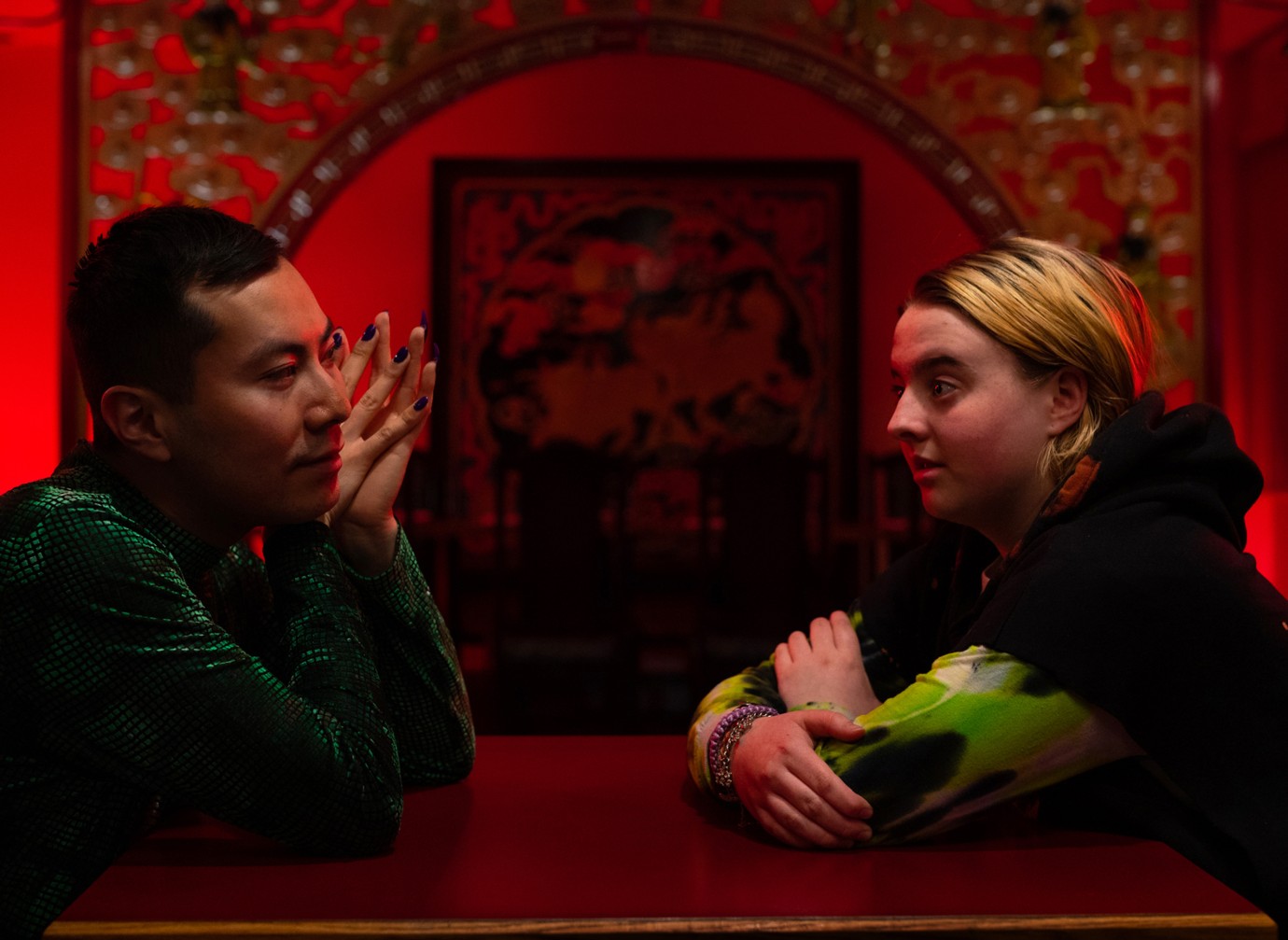Every once in a while, a film hits you like a ton of bricks. With its singular vision and deeply realized characters, 2022 TIFF standout Queens of the Qing Dynasty, directed by Canadian filmmaker Ashley McKenzie, is one of those films. A queer coming-of-age story, it charts the growing bond between Star (Sarah Walker), a neurodivergent teen who is hospitalized for a suicide attempt, and An (Ziyin Zheng), an international student from Shanghai who volunteers to keep them company. Existing on the fringes of society in their own ways, the pair find comfort and connection in their friendship.
As a character study, the film’s success hinges on its two protagonists. With all of their complexities and humanness, it is no surprise that McKenzie based Star and An off real people in her life.
“Star really closely resembles a good friend of mine who I met for the very first time when I was casting Werewolf, my first feature. It didn’t really work out, but I became one of her only friends at the time,” McKenzie tells Xtra. “We communicate very regularly and Star really emerged as a character on the page because the way that this particular friend of mine speaks and sees the world is just utterly unique.”
Originally, An’s character was a stand-in for McKenzie herself. But then her neighbour, Ziyin Zheng, insisted on being cast in one of her films. After a year of knowing them, An began to materialize in the script.
“I experimented with the idea and then began rewriting the script and I integrated aspects of their world view and their life experience into the character,” McKenzie says.
Despite very little rehearsal time before filming, the chemistry between Walker and Zheng stands out as special and electric; an unseen, unspoken force that is felt even when there is minimal dialogue.
“It is in the language that they form with one another—the way that you sometimes do when you’re kind of in a romantic bubble with someone. You develop a shorthand,” McKenzie says. “I think it’s kind of a testament to their performances and their curiosity that elicited their connection and similar wavelength. When they were on screen, they were doing a good job listening to one another.”
In a cathartic scene near the end of the film, An and Star visit a virtual reality room and play as avatars. In that world, they can be whoever they want with a sense of freedom that currently isn’t attainable to them, an experience that many queer folks can relate to.
“The characters are each very creative and they’re in a world that doesn’t really value them. But when they spend time together, it’s like they’re creating their own space that allows them to expand out from the limitations of the everyday world,” McKenzie says. “It felt nice to land in this place where they’re literally stepping into a more concrete, alternate world and being free, which is what I think they deserved.”
There is a small moment where Star says she is asexual, a sexuality that is rarely depicted in media. After watching the film back, and reading Angela Chen’s Ace: What Asexuality Reveals About Desire, Society, and the Meaning of Sex, McKenzie realized that she herself is on the ace spectrum.
“I think I must have been trying to articulate something like that. To me, the film is a portrait of a relationship that shows you that attraction can take many different forms. An and Star have a queer platonic relationship. Maybe in a more commercial version of the film, they would have a romantic one. They kind of skewer marriage and tradition. That’s what, to me, makes it feel like a queer film.”
McKenzie is someone who skewers tradition in her own way, continuing to make films in Cape Breton in Nova Scotia instead of adhering to the Canadian model of working in British Columbia or Ontario.
“The first instinct is to join the union, get a manager, do this, do that because that’s what success is. What the industry is telling me to become is not the life that I’m trying to build for myself at home in my community. I would have to be a different person and that’s not what I want,” she says.
Much of Queens of the Qing Dynasty touches on loneliness and isolation. McKenzie knows first-hand how hard it can be to find community, especially when you don’t live in a big city. But she has some starter tips.
“I was in Toronto and another filmmaker invited me to Sqwish, a queer, drop-in basketball game on Friday nights. It was literally the first time I was in a room with a bunch of queer people and it was the first time I’ve felt relaxed and happy,” she says. “After I came home, my friend and I decided to start our own league, which was my entry point into connecting with the community here.”
And sometimes unconventional friendships are the way to go, too. McKenzie recommends scrapping societal rules that dictate who you can hang out with.
“I remember times where my closest friends were an 11-year-old and a 70-year-old, which is not typical. But the world can just give us the most boring, simplistic scripts of how we’re supposed to socialize,” she says. “I’ve found it to be fulfilling to be open to lots of different types of relationships and to form them in ways that are different than what society says we should have.”
Queens of the Qing Dynasty will play at the TIFF Bell Lightbox starting March 3.


 Why you can trust Xtra
Why you can trust Xtra


